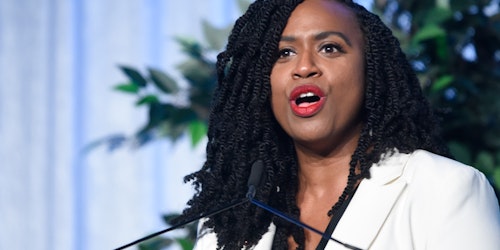Girl Up USA’s introduction of youth-led long-form content, through LeadHER Voices, aims to amplify our mission of educating and empowering girls across the United States. By providing a platform for youth to share their passions and explore topics they care about, we create opportunities for them to educate others while deepening their understanding. This initiative will expand our reach, foster informed and meaningful discussions, and strengthen alignment with Girl Up’s values and goals.
Throughout history, the narratives that dominate our textbooks often focus on prominent figures—kings, presidents, renowned scientists—while the myriad contributions of everyday individuals, particularly women, remain overlooked. Yet, as American journalist Dorothy Dix noted, “the Ordinary Woman is the real heroine of life.” It is these “ordinary” women who have woven the very fabric of our societies, their resilience and dedication driving progress in countless, often unrecognized ways. As we observe Women’s History Month, it is both fitting and necessary to honor these unsung heroines, acknowledging their pivotal roles from centuries past to the present day.
Historical Contributions of Ordinary Women
Growing up, I often heard stories from my grandmother about how she worked tirelessly to provide for her family, taking on multiple roles both inside and outside the home. In Malaysia, women have navigated between traditional values and modern challenges, contributing significantly to the nation’s progress. My grandmother, who grew up in a small village, faced numerous challenges due to her ethnicity and gender. Her resilience and determination to provide for her family despite societal barriers echo the struggles of many women in Malaysia.
The Industrial Revolution of the 18th and 19th centuries saw women entering factories in large numbers, working long hours under grueling conditions. Their labor was instrumental in powering burgeoning industries, yet they often received meager wages and faced hazardous environments. Despite these challenges, these women laid the groundwork for labor rights movements, advocating for fair wages and safer working conditions. Hearing my grandmother talk about the sacrifices she made and the resilience she showed in the face of adversity, I can’t help but see echoes of these past struggles in the present. Her stories of perseverance and dedication remind me that the strength of ordinary women has always been a driving force behind societal progress.

Modern-Day Impact of Ordinary Women
Today, I see the power of ordinary women in my own life. My mother, who balanced her career while ensuring my siblings and I had everything we needed, is a testament to the resilience of women. I remember how she would stay up late to help me with my homework, even after a long day at work, and still wake up early the next morning to make us breakfast. Her unwavering support and dedication have been a constant source of inspiration for me.
The teachers who encouraged me to pursue my passions also played a significant role in my development. My high school math teacher not only helped me excel academically, but also inspired me to lead and mentor others. She once stayed after school for hours to help me prepare for a math competition, showing me the importance of perseverance and hard work. Her belief in my abilities motivated me to become a community leader, dedicated to empowering others through education and technology.
The mentors who guided me through my leadership roles, and the countless women who work behind the scenes in various industries all embody the spirit of progress and dedication. Often we are quick to celebrate and praise the celebrity, however I believe it is even more important to recognized the unsung ordinary women in fields like Education and Community Leadership:
Education: Female educators shape future generations, imparting knowledge and values that students carry throughout their lives. My journey in education, particularly in STEM, was shaped by female mentors who encouraged me to break barriers. My high school computer science teacher, who saw potential in my coding skills, pushed me to join initiatives and clubs where I’ve formed life-long connections and my voice in STEM. The way I carry myself now in such a male-dominated field wouldn’t have been possible without their support.
Community Leadership: Women often spearhead community initiatives, from organizing local events to leading volunteer efforts. Leaders like Marian Wright Edelman, founder of the Children’s Defense Fund, and Dorothy Height, who led the National Council of Negro Women, have dedicated their lives to uplifting marginalized communities through education and advocacy. IBeing involved in leadership roles myself, from Girls Who Code to my work with digital literacy initiatives, I’ve seen firsthand how women create spaces for learning, growth, and change. My mother, who balanced her career while ensuring my siblings and I had everything we needed, always encouraged me to pursue my passions and take on leadership roles. Similarly, Mrs. Johnson, my high school math teacher, not only helped me excel academically but also inspired me to lead and mentor others. Their unwavering support and belief in my abilities motivated me to become a community leader, dedicated to empowering others through education and technology.
Don’t let anything stop you. Not even yourself.
Wilma mankiller
Challenges and Resilience
Despite their invaluable contributions, ordinary women frequently face systemic challenges that hinder their professional growth and personal well-being.
Gender Bias: Women in various professions often encounter prejudices that undervalue their expertise and limit their opportunities for advancement. In many industries, women are paid less than their male counterparts for the same work, and leadership positions remain disproportionately occupied by men. This bias extends beyond wages, influencing workplace dynamics, hiring practices, and career progression. For instance, women hold only 25% of senior leadership roles in the health sector, despite comprising 70% of the workforce. I’ve experienced moments of being underestimated in my leadership roles, whether in STEM or student organizations, and even I’ve had to work twice as hard to prove myself.
Work-Life Balance: Balancing professional responsibilities with familial duties is another major challenge for many women. Societal expectations often place an undue burden on them to manage both work and household duties seamlessly. Seeing my mother navigate this balancing act gave me a firsthand understanding of the sacrifices women make daily. After a long late night shift, she would still get home to She would often work late into the night after putting my siblings to bed and still wake up early the next morning to make us lunch and breakfast. Her dedication to both her career and our family has been a constant source of inspiration for me.
Recognition: The achievements of ordinary women are frequently overlooked in both historical and contemporary narratives. Textbooks, media, and public discourse often focus on a select few female trailblazers while ignoring the everyday women who have shaped communities, workplaces, and families through their resilience and dedication. Leaders like Frances Harper in the abolitionist movement or Rosalind Franklin in the scientific movement go without recognition in the history books. This lack of representation reinforces the misconception that significant contributions come only from those in the public eye, rather than from the countless women who work tirelessly behind the scenes.
Path Forward: Honoring and Empowering Ordinary Women
To truly honor these women, society must actively acknowledge and celebrate their contributions across all sectors. Their stories should be shared, ensuring that their impact is recognized and valued. Schools, media, and organizations should highlight the essential roles that ordinary women play in shaping the world.
Promoting equality is also crucial in addressing systemic barriers. Policies that combat gender bias, ensure fair wages, and create leadership opportunities for women must be implemented and enforced. Equal representation in decision-making roles will pave the way for more inclusive and supportive workplaces. Recent progress includes the UN’s Beijing+30 Action Agenda, which aims to achieve gender equality through initiatives like digital revolution, freedom from poverty, and zero violence. Additionally, countries with domestic violence laws have reported lower rates of intimate partner violence, demonstrating the positive impact of such policies.
Supporting work-life integration is another vital step toward empowering women. Providing accessible childcare, implementing parental leave policies, and encouraging flexible work arrangements can help women balance their personal and professional lives without sacrificing one for the other. Recent movements advocating for paid parental leave and leaders like Jacinda Ardern, who championed work-life balance during her tenure as New Zealand’s Prime Minister, have paved the way for more supportive environments for working women. When these structures are in place, women are better equipped to thrive in their careers while maintaining fulfilling personal lives.
As we reflect during Women’s History Month, let us remember that the strength of our societies is built upon the unwavering efforts of ordinary women. Their stories, though often untold, are the threads that weave our collective history. By acknowledging and supporting these women, we not only honor their legacy but also pave the way for a more equitable and inclusive future.








